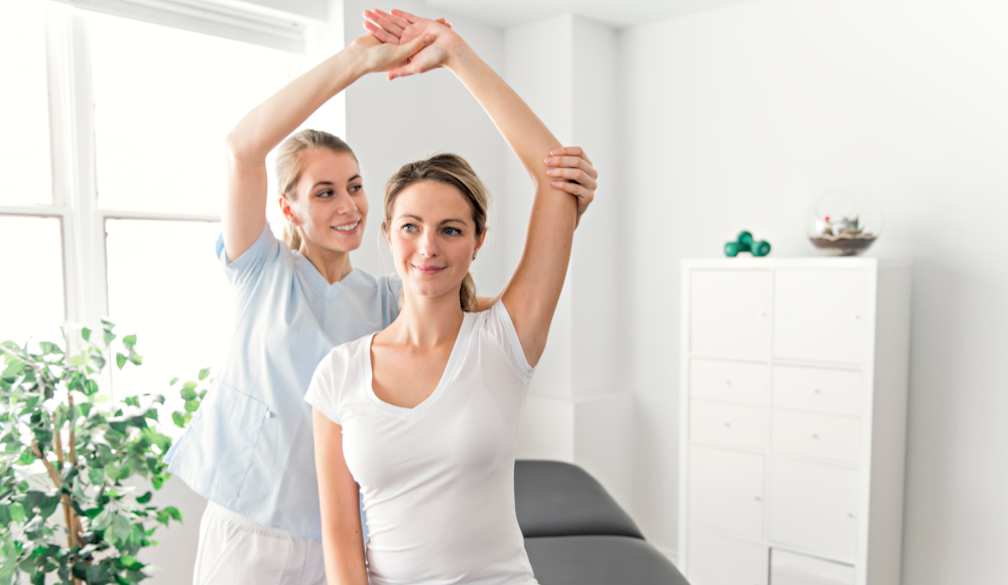Essential Tools and Equipment for Home Physiotherapy Exercises
- Written by Telegraph Magazine

As you embark on your journey towards recovery through home physiotherapy, you might be wondering: are there any additional tools or equipment I should consider purchasing for my home exercises? The answer is yes! While many exercises can be performed with minimal equipment, certain tools can enhance your routine, improve your results, and make your home physiotherapy experience more effective and enjoyable.
Remember to consult with your in-home physiotherapy provider or healthcare provider before purchasing any equipment to ensure it aligns with your treatment plan and individual needs. With the right tools and dedication, you can make significant strides towards achieving your rehabilitation goals from the comfort of your own home.
Here, we'll explore some essential tools and equipment to consider adding to your home physiotherapy arsenal.
Resistance Bands:
Versatile and affordable, resistance bands are a staple in any home physiotherapy toolkit. These elastic bands come in a variety of resistance levels, ranging from light to heavy, allowing you to tailor your workouts to your individual strength and fitness level. Whether you're recovering from an injury or looking to enhance your overall fitness, resistance bands offer endless possibilities for targeting different muscle groups.
From simple bicep curls to more complex lower body exercises, resistance bands provide a challenging yet low-impact way to build strength, improve flexibility, and increase muscle tone. Plus, their portable nature makes them perfect for travel or on-the-go workouts, ensuring you can stay consistent with your exercise routine no matter where you are.
Foam Roller:
A foam roller is a game-changer when it comes to self-myofascial release and recovery. By applying pressure to specific areas of your body using the foam roller, you can effectively release tension, alleviate muscle tightness, and improve flexibility.
Whether you're targeting your calves, hamstrings, or back, foam rolling can help enhance blood flow to the muscles, reduce inflammation, and speed up the recovery process after a tough workout or injury. Incorporating foam rolling into your routine not only feels great but also helps prevent injuries by keeping your muscles supple and resilient.
Balance Board or Stability Disc:
Balance and stability are crucial components of any physiotherapy program, and a balance board or stability disc can take your workouts to the next level. These tools challenge your proprioception and coordination, forcing your muscles to work harder to maintain balance.
By incorporating balance exercises into your routine, you can improve your overall stability, reduce the risk of falls, and enhance athletic performance. Whether you're rehabilitating from an injury or simply looking to improve your balance, a balance board or stability disc is a valuable addition to your home gym.
Hand Weights or Dumbbells:
If you're looking to build strength and muscle mass, hand weights or dumbbells are essential tools to have on hand. These versatile pieces of equipment allow you to perform a wide range of resistance exercises, targeting different muscle groups throughout your body.
Whether you're doing shoulder presses, lunges, or chest flies, hand weights provide a challenging yet effective way to build muscle and increase strength. Start with lighter weights and gradually increase the resistance as you progress to ensure safe and effective results.
Therapeutic Balls:
Therapeutic balls, such as stability balls and massage balls, offer additional options for strengthening, stretching, and self-massage. Stability balls can be used for core exercises and balance training, helping to improve stability and posture. Massage balls are perfect for targeting trigger points and releasing muscle tension, providing relief from soreness and discomfort.
Incorporating therapeutic balls into your routine can help enhance your overall mobility, flexibility, and muscular balance, making them valuable tools for rehabilitation and injury prevention.
Mat:
A high-quality exercise mat is essential for providing a comfortable and supportive surface for your workouts. Whether you're doing floor exercises, stretching, or yoga, a non-slip mat helps protect your joints and prevent injuries by providing cushioning and stability. Look for a mat that is durable, easy to clean, and provides adequate thickness and grip to ensure a safe and comfortable workout experience.
Resistance Tubing:
Similar to resistance bands, resistance tubing provides a convenient and effective way to add resistance to your exercises. With handles for easy gripping, resistance tubing allows you to perform a variety of upper body exercises, targeting the arms, shoulders, and back. Whether you're rehabilitating from an injury or looking to increase muscle strength and endurance, resistance tubing offers a versatile and portable solution for your home workouts.
Pulse Massager:
For targeted pain relief and muscle relaxation, a pulse massager or TENS unit can be a valuable investment. These devices use electrical impulses to stimulate the nerves and muscles, providing relief from pain and promoting muscle recovery. Whether you're dealing with sore muscles, joint pain, or muscle tightness, a pulse massager can help alleviate discomfort and improve overall well-being.
With adjustable settings and portable designs, these devices are perfect for incorporating into your home physiotherapy routine for soothing and therapeutic relief.











